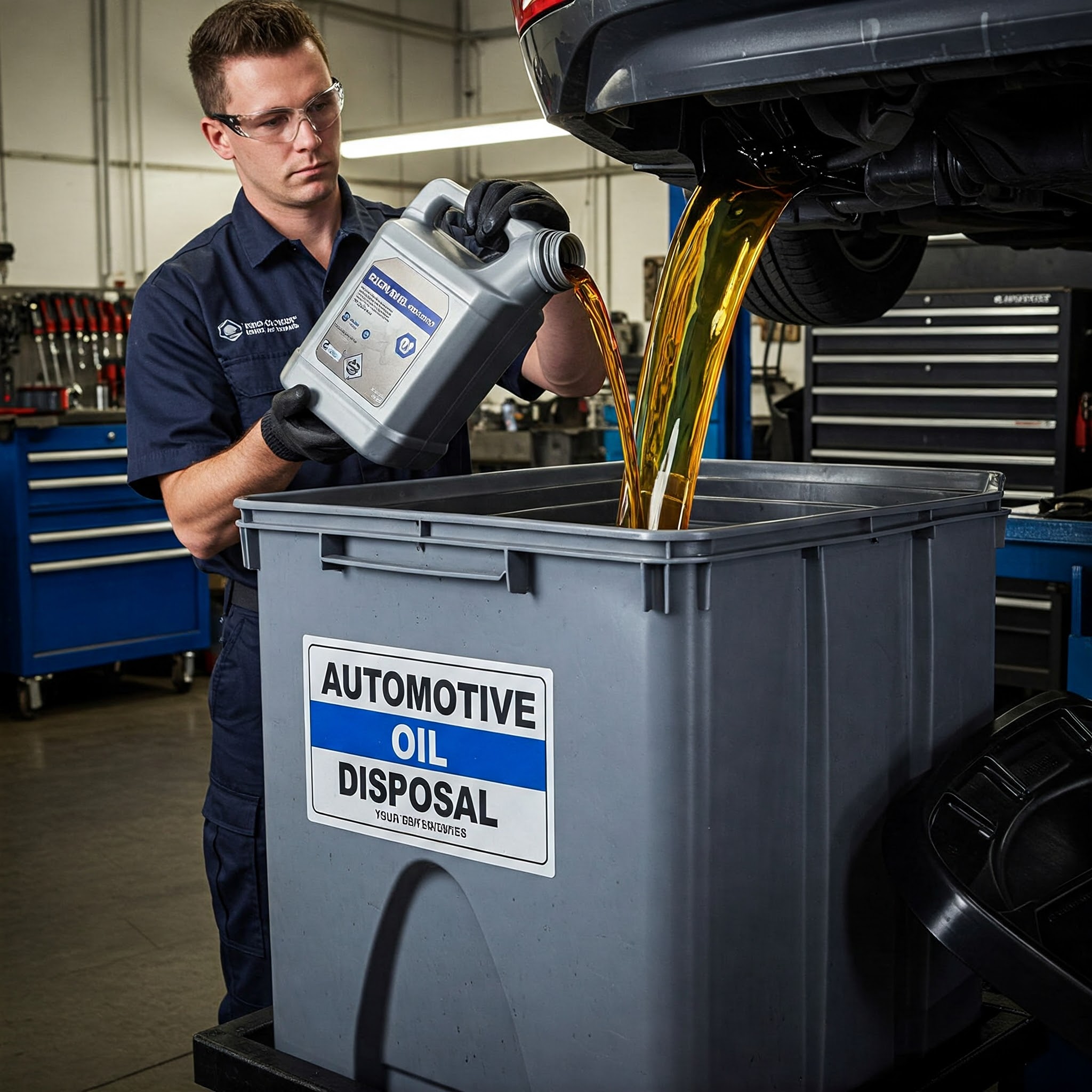Proper automotive oil disposal is crucial for maintaining Melbourne’s environment. Used motor oil contains harmful contaminants that can pollute water sources, soil, and air if not disposed of correctly. This guide provides in-depth insights into responsible disposal and recycling methods.
Why Proper Automotive Oil Disposal Matters
Prevents soil and water contamination
Protects wildlife and ecosystems
Ensures compliance with legal requirements
Supports sustainable resource management
Environmental Impact of Improper Oil Disposal
Improper disposal methods like dumping used oil down drains or into landfills lead to severe environmental consequences:
Water Pollution: One liter of used oil can contaminate up to one million liters of water.
Soil Contamination: Oil leaching into the soil affects agriculture and plant life.
Air Pollution: Burning used oil releases toxic fumes that contribute to respiratory illnesses.
Laws and Regulations for Automotive Oil Disposal in Melbourne
Melbourne follows strict regulations for used oil disposal:
Environmental Protection Act 2017: Prohibits illegal dumping of hazardous waste.
EPA Victoria Guidelines: Mandates proper collection and recycling of used motor oil.
Penalties for Violations: Heavy fines and legal actions against offenders.
Where to Dispose of Used Automotive Oil in Melbourne
Several facilities accept used oil for recycling, including:
Local Council Recycling Centers (Find locations via Sustainability Victoria)
Auto Repair Shops & Mechanics
Licensed Hazardous Waste Collection Sites
Step-by-Step Guide to Disposing of Used Oil
Collect Used Oil in a Sealed Container
Label the Container Properly
Avoid Mixing with Other Substances
Transport to a Licensed Disposal Facility
Recycle the Oil Whenever Possible
DIY Automotive Oil Disposal: Do’s and Don’ts
Do:
Use a leak-proof container
Store away from children and pets
Follow local disposal guidelines
Don’t:
Pour oil down the drain or on the ground
Mix with other automotive fluids
Burn used oil
Recycling Automotive Oil: How It Works
Used oil can be refined and reused in various industries:
Re-refined into Lubricants
Processed into Fuel for Industrial Use
Used in Asphalt Production
Common Myths About Used Oil Disposal
Myth: Used oil breaks down naturally.
Fact: Oil remains hazardous for decades.
Myth: Burning oil is an eco-friendly option.
Fact: It releases toxic emissions.
Best Practices for Storing Used Oil Before Disposal
Store in sealed, non-corrosive containers.
Keep containers in a cool, dry place.
Label properly to avoid accidental misuse.
How Mechanics and Workshops Handle Oil Waste
Professional auto shops use oil collection services and on-site storage to manage waste responsibly. Many workshops partner with certified recyclers.
Oil Spill Management and Cleanup
Use absorbent materials like sand or sawdust
Clean up immediately to prevent spreading
Dispose of contaminated materials properly
Choosing Eco-Friendly Automotive Oils
Opt for biodegradable oils and synthetic blends that reduce environmental impact. Brands offering re-refined motor oils contribute to sustainability.
The Role of Government and Community Programs
Government agencies and NGOs run awareness campaigns and oil collection drives. Melbourne residents can participate in programs like Household Chemical Collection.
How Businesses Can Improve Their Oil Disposal Practices
Train employees on safe disposal techniques
Partner with certified oil recyclers
Implement waste reduction strategies
Penalties for Illegal Oil Dumping in Melbourne
Violators face fines ranging from $5,000 to $1 million depending on severity. Reporting illegal disposal helps protect Melbourne’s environment.
Alternative Uses for Recycled Automotive Oil
Re-refined motor oil production
Industrial burner fuel
Asphalt manufacturing
Technical Details on Oil Recycling Processes
Recycling used oil involves several technical steps:
Filtration and Dehydration: Removes water, dirt, and debris.
Distillation: Separates oil into base components.
Hydrotreating: Uses hydrogen to remove impurities.
Re-refining: Produces high-quality lubricants and fuels.
Cost of Automotive Oil Disposal and Recycling
Household Disposal: Free at designated collection centers.
Mechanic Workshops: Costs vary; may include service fees.
Industrial Waste Collection: $100 - $300 per 1000 liters.
Recycling Costs: Processing can cost $0.50 to $1 per liter.
Fines for Illegal Dumping: Up to $1 million for businesses.
Frequently Asked Questions (FAQs)
Q: Where can I dispose of used automotive oil in Melbourne?
A: You can take it to local recycling centers, auto shops, or hazardous waste facilities.
Q: Can used oil be recycled?
A: Yes! Used oil can be cleaned, re-refined, and reused in various applications.
Q: What happens if I pour oil down the drain?
A: It can clog pipes, contaminate water sources, and result in heavy fines.
Resources for Further Information
Conclusion and Call to Action
Proper automotive oil disposal is essential for protecting Melbourne’s environment. Always recycle used oil at designated facilities and follow local regulations. If you have more questions, check with EPA Victoria or your local council.
Get Involved:
Find a local oil recycling center today!
Share this guide to spread awareness.
Report illegal dumping to the authorities.
By taking action, we can ensure a cleaner, greener Melbourne for future generations!